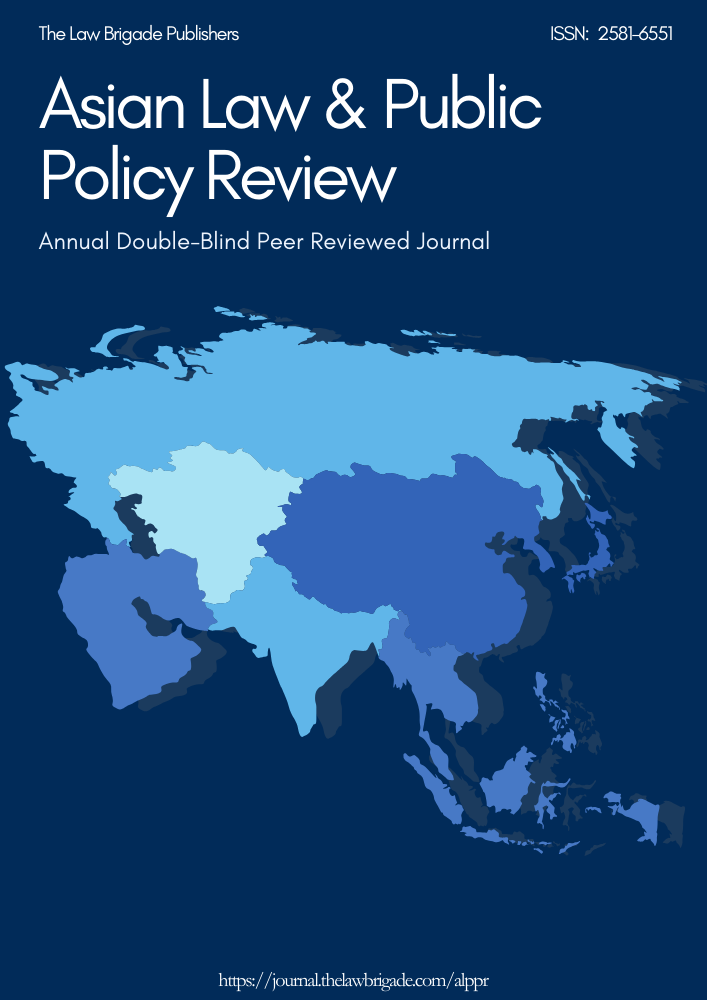Risk Prevention And Control And Construction Path Of Criminal Compliance Of Construction Engineering Corporates
Keywords:
Construction Engineering Corporates,, Corporate Compliance System, Compliance Identification, Criminal Compliance RiskAbstract
The corporate compliance system, an internal control mechanism to prevent, detect and stop illegal and criminal offences within a corporate, can serve to effectively solve potential criminal compliance risks in construction projects. The construction projects are characterized by their long-term, continuous and concealed nature. In addition, the system design of construction projects is limited by many factors, including the limitation of traditional centralized administrative mode, the absence of process supervision mechanism and reciprocal motivation mechanism, the complicated setting of supervision matters, the lack of reciprocity of the motivation mechanism and the dislocation of the main body in regulatory responsibilities. Such that, numerous violations of rules and regulations, including quality-centred disputes and safety accidents, keep coming up in the construction industry in China.
Under the context of the co-development of economic and legal globalization, in order to prevent and control the potential criminal compliance risks of construction engineering corporates, it is necessary to construct compliance rules centred on supervision activities, form a corporate criminal offence and compliance identification mechanism, improve the corporate criminal liability system, establish corporate obligation and rules of criminal compliance, formulate measures for the dual models of punishment and incentive, and promote the construction and implementation of the corporate compliance system of the construction industry.
Downloads
References
i State-owned Assets Supervision and Administration Commission of the State Council, ‘Notice on Issuing the
Guidelines for the Compliance Management of Central Enterprises (for Trial Implementation)’
, accessed 29 June 2021.
ii Ruihua Chen, ‘Corporate Criminal Liability Issues from the Perspective of Compliance’, (2020) 1, Global Law
Review, 23-40.
iii Peng Liu, ‘Countries Pay More Attention to Compliance Issues After the ZTE Incident’,
<http://finance.sina.com.cn/meeting/2018-06-30/doc-ihespqrx4686449.shtml>, accessed 2 July 2021.
iv Hong Li, ‘Compliance Plans and Corporate Criminal Liability’, (2019) 9 Journal of Law, 9-19.
DOI:10.16092/j.cnki.1001-618x.2019.09.002.
v Ruihua Chen, ‘Three Dimensions of Corporate Compliance System—Analysis from the Perspective of
Comparative Law’, (2019) 3 Comparative Law Research, 61-77.
vi Bencan Li, ‘The Reference of Compliance Plan System in Corporate Crime Prevention’, (2015)5 China Law,
177-205. DOI:10.14111/j.cnki.zgfx.2015.05.012.
vii Philip Weller, ‘Effective Compliance Programs and Corporate Criminal Litigation", Fang tr, (2018) 3 Wan
Financial Law, 27-39.
viii According to the relevant statistics, the data on June 31, 2015 showed that there were less than 40 Chinese
corporates and individuals on the "blacklist" published by the World Bank; while the data on June 31, 2018
showed that there were 88 corporates and individuals on the World Bank's blacklist when the data on June 31,
2018 showed, among which the Chinese corporates and individuals included in the sanctions list in 2016 were
Among the 53 companies on the list in 2015, engineering and related consulting and technology companies
accounted for a relatively large proportion.
ix Sean J. Griffith,Corporate Governance in an Era of Compliance in 57 Social Science,William & Mary Law
Review, vol.57 (May, 2016),p.2088.
x Youyong Zhou, ‘Construction of Enterprise Compliance Agreement System under the Concept of Contract
Administration—From the Perspective of Engineering Construction Field’, (2021) 5 Law Forum, 49-61.
xi Robert Baldwin and others, ‘Oxford Manual of Regulations’ (Song Hualin and others, 3rd edn, Shanghai Sanlian
Publishing House 2017) ,p.180.
xii Zhai Dong, ‘Construction of Project-Oriented Administrative Compliance System for Integrated Engineering’,
(2021) 3 Law Forum, 79-90.
xiii Wei Cui, ‘Social Participation in Criminal Justice: Subjects, Models and Improvement Approaches’, (2018) 6
China Criminal Law Journal, 129-142.DOI:10.19430/j.cnki.3891.2018.06.008.
xiv Yanan Shi, ‘Compliance Program Implementation and Criminal Attribution of Units’ , 2019(9) Journal of Law,
20-33.DOI:10.16092/j.cnki.1001-618x.2019.09.003.
xv Ji Wen, ‘An Empirical Study on the Legislation for Balancing the Crime and Penalties of Fines in Unit Crimes,’
2018(1) Journal of Chinese Criminal Law, 54-73.DOI:10.19430/j.cnki.3891.2018.01.005.
xvi Yuhua Li, ‘Criminal Litigation Incentives for Corporate Compliance in my country’, (2020) 1 Comparative
Law Research, 19-33.
Downloads
Published
Issue
Section
License

This work is licensed under a Creative Commons Attribution-NonCommercial-ShareAlike 4.0 International License.
License Terms
Ownership and Licensing:
Authors of research papers submitted to any journal published by The Law Brigade Publishers retain the copyright of their work while granting the journal specific rights. Authors maintain ownership of the copyright and grant the journal the right of first publication. Simultaneously, authors agree to license their research papers under the Creative Commons Attribution-ShareAlike 4.0 International (CC BY-SA 4.0) License.
License Permissions:
Under the CC BY-SA 4.0 License, others are permitted to share and adapt the work, even for commercial purposes, provided that appropriate attribution is given to the authors, and acknowledgment is made of the initial publication by The Law Brigade Publishers. This license encourages the broad dissemination and reuse of research papers while ensuring that the original work is properly credited.
Additional Distribution Arrangements:
Authors are free to enter into separate, non-exclusive contractual arrangements for distributing the published version of the work (e.g., posting it to institutional repositories or publishing it in books), provided that the original publication by The Law Brigade Publishers is acknowledged.
Online Posting:
Authors are encouraged to share their work online (e.g., in institutional repositories or on personal websites) both prior to submission and after publication. This practice can facilitate productive exchanges and increase the visibility and citation of the work.
Responsibility and Liability:
Authors are responsible for ensuring that their submitted research papers do not infringe on the copyright, privacy, or other rights of third parties. The Law Brigade Publishers disclaims any liability for any copyright infringement or violation of third-party rights within the submitted research papers.


